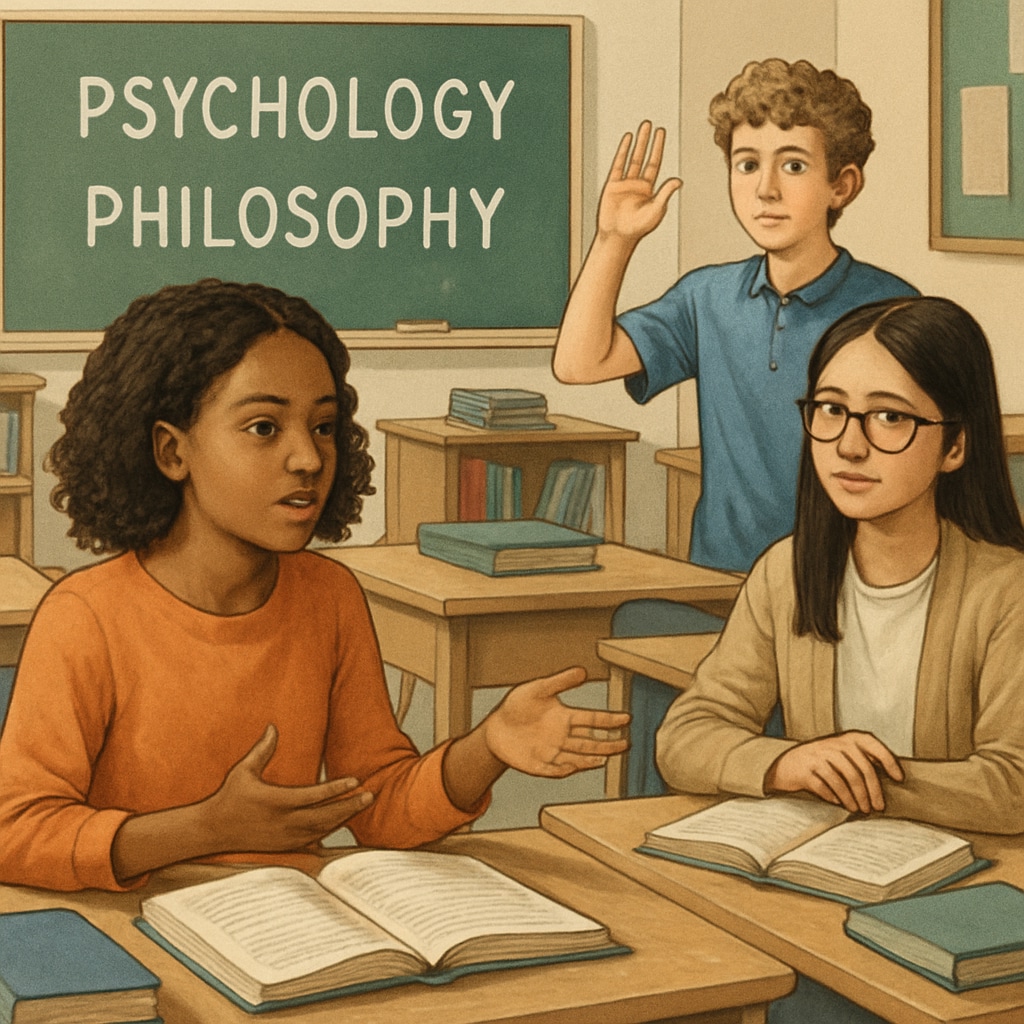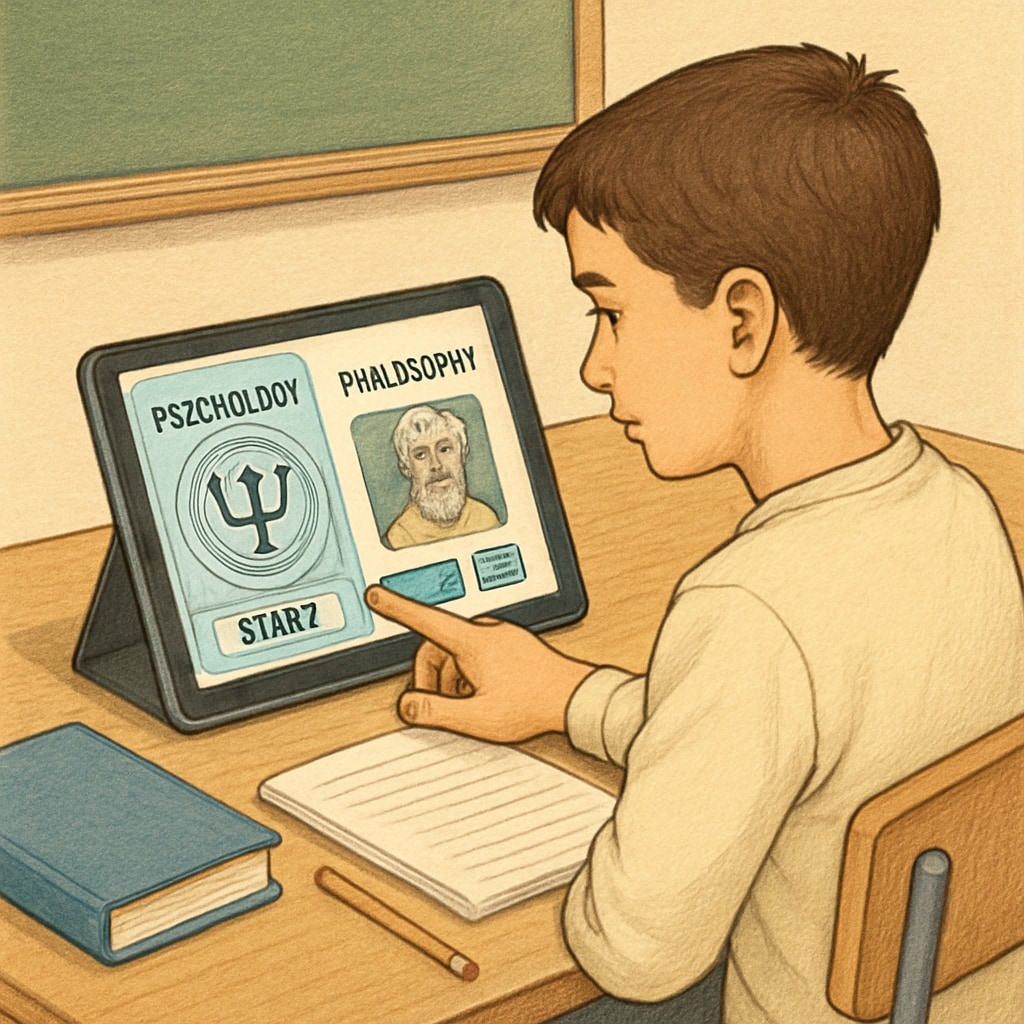Introducing young learners to the fascinating worlds of psychology and philosophy can be a transformative experience. By utilizing psychology, philosophy, and self-learning resources, students in the K12 phase can enhance critical thinking, self-awareness, and their understanding of the world around them. This article explores effective methods and curated resources to make these subjects accessible and engaging, even outside traditional academic settings.
Why Teach Psychology and Philosophy in the K12 Phase?
Psychology (the study of the mind and behavior) and philosophy (the study of fundamental questions about existence, knowledge, and ethics) are cornerstone disciplines that foster intellectual curiosity and emotional intelligence. For K12 students, exposure to these topics can:
- Develop critical and analytical thinking skills.
- Encourage empathy and emotional understanding.
- Provide tools for problem-solving and ethical reasoning.
- Stimulate a lifelong love for learning and questioning.
Moreover, these subjects can help children navigate their own emotions and relationships, making them more thoughtful and self-aware individuals.

Accessible Resources for Learning Psychology and Philosophy
Incorporating psychology and philosophy into a young learner’s life doesn’t have to be daunting. Below is a curated list of resources tailored to K12 students:
Books for Beginners
- “The Little Book of Psychology” by Emily Ralls and Caroline Riggs – A simple yet engaging introduction to psychological concepts.
- “Sophie’s World” by Jostein Gaarder – A narrative-driven exploration of Western philosophy, perfect for teens.
- “What Does It All Mean?” by Thomas Nagel – A beginner-friendly guide to philosophical questions.
Podcasts and Audiobooks
- “The Happiness Lab” – Explores the science of happiness and well-being.
- “Philosophy Bites” – Short episodes that break down complex philosophical ideas.
- “Brains On!” – A science podcast for curious kids, often touching on psychological themes.
Interactive Online Tools
- Khan Academy – Offers free courses on psychology and critical thinking.
- Stanford Encyclopedia of Philosophy – A comprehensive resource for deeper philosophical topics.
- Psychology Today – Articles on human behavior and psychology, written in accessible language.
Engaging Video Content
- CrashCourse Psychology – A YouTube series that breaks down psychological principles in an engaging manner.
- School of Life – Videos that explore philosophical ideas and their relevance to everyday life.

Practical Tips for Encouraging Self-Learning
To make psychology and philosophy approachable for K12 students, consider these practical strategies:
Create a Curiosity-Driven Environment
Rather than presenting these subjects as academic tasks, inspire curiosity by linking them to real-life scenarios. For instance, discuss questions like “Why do people act the way they do?” or “What defines happiness?” during everyday conversations.
Encourage Journaling and Reflection
Journaling is a great way for students to explore philosophical questions and their own thoughts. Prompt them with questions like “What is one thing you’ve learned about yourself today?” or “What makes a good person?”
Host Family Discussions
Engage the entire family in debates or discussions about ethical dilemmas or philosophical questions. This not only makes learning fun but also improves communication skills.
Use Gamification
Introduce games that require strategic thinking or moral decision-making, such as “The Sims” for psychology or “Quandary” for ethical reasoning.
Measuring Progress and Keeping Motivation High
Finally, it’s essential to track progress and celebrate milestones in self-learning. Here’s how:
- Use progress journals or digital tools to record reflections and key lessons.
- Reward curiosity and effort with small incentives, such as books or other resources.
- Encourage students to teach what they’ve learned to friends or family, reinforcing their understanding.
In conclusion, introducing psychology and philosophy to K12 students through self-learning resources can empower them to think critically and understand themselves and the world better. With the right tools and guidance, the journey can be both educational and deeply rewarding.
Readability guidance: This article maintains short paragraphs, includes lists for easy reference, and ensures a balance between engaging content and descriptive resources. Transition words are used throughout to ensure smooth reading flow.


